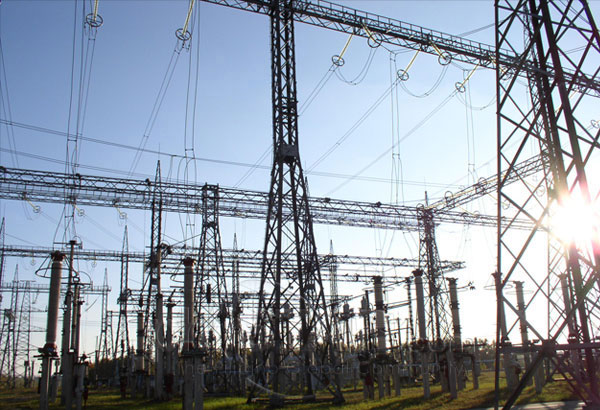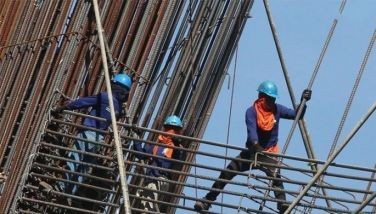Road to self-sustaining economic growth and President Duterte’s lament (continued)
Last week’s essay closed by emphasizing the need to pass the comprehensive tax reform program to provide the proper non-inflationary financing for the 10-year development plan that involves higher infrastructure investments and other public spending program.
Reassuring private investors, both domestic and foreign. It is also important to emphasize the improvement of the private investment climate in the country. In this connection, the recent words of Takehiko Nakao, president of the Asian Development Bank, in a recent interview (BusinessWorld) are very appropriate:
Generally speaking, the Philippines is enjoying remittance from abroad, investment from abroad and business process outsourcing is growing very fast.
“If President Duterte can give confidence to foreign investors as well as domestic investors — that they can deliver investments in infrastructure like road and logistics, and they can promote the idea of leveling up of education for ordinary people, and if governance like corruption and control of drugs go well — I think confidence of investors will pick up and the Philippines can use its natural strength in human and natural resources for sustained growth.”
Further, Mr. Nakao said investors are “pay(ing) attention to the Philippines again” amid concern over rising wages in China, citing Japanese manufacturers that are turning again to the Philippines as an alternative site for their factories.”
These are comforting statements about the prospects for the future. They support the prediction that the country is on a high growth path that requires as well the increase in volume of private investments.
A careful evaluation would remind us that they are not empty words. They hint that often and recently, we get conflicting signals from the government about the need for private investor reassurances. This is especially more so in the case of the climate for foreign direct investments.
Corruption and economic performance. My column last week elicited comments on the importance of corruption as a reason for the country’s economic lag. While this is acknowledged, it is a simple view of a complex matter.
Corruption is a negative factor to economic growth. When it occurs in large scale and is tolerated within the body politic, the costs of economic transactions are jacked up. The outcomes of the transactions distort the allocation of resources, for often they reward those who are not often intended. Corruption leads to loss of productivity through the tolerance of additional and unnecessary burdens to the economy.
For these reasons, it pays for governments to reduce corruption as part of a program of improving governance. Yet, we find that many of the countries that have performed well economically show strong elements of corruption being also being part of their economic experience.
The prevalence of corruption is tracked these days continuously by Transparency International, a private international corruption-watch group. We find that in countries with which I compared Philippine economic performance, corruption is also a major factor of concern.
With the exception of Singapore, and to a less extent, Malaysia, corruption is an ever-present problem in Indonesia and in Thailand in their economic development experience. In all three countries, discussion of corruption as a national problem takes center stage.
Nowhere among these countries, however, is corruption a major topic of media discussion and exposure as it is done in the Philippines. Because of the constant preoccupation of media on the matter, there is a public consciousness about its presence. This probably leads toward a far more negatively perceived ingrained occurrence in our case, especially by those who help to contribute to the scoring of corruption incidence.
The explosive corruption scandal in Malaysia recently, which has involved the highest official of the land, might provide a factor that could raise the corruption perception for the country. Such event is less reported and sensationalized in Malaysia however.
Across different periods of time, the degree of corruption recorded for the Philippines, Indonesia and Thailand have been relatively close and quite comparable.
It should also be added that in some other highly performing economies in the East Asia region, China and Vietnam, have corruption scores that are also quite high, and close to those recorded for the Philippines. (Vietnam, an ASEAN member country, is still behind the Philippines in per capita income terms. In terms of trade expansion and the entry of foreign direct investments, it has succeeded in a far shorter time than we have ever experienced to gain.
When all is said and done, the main difference that characterizes countries experiencing rapid economic growth is the manner in which their economic policies have allowed for the increase in investments and productivity. This is the policy framework that enabled them to make a deep dent on the problem of alleviating widespread poverty in the country.
When we fell behind and why. To explain more fully when and how we fell behind in economic performance requires delving more deeply into other factors.
In my view, the main fault was due to the “original sin:” when we introduced the restrictive economic provisions in the Philippine constitution way back in 1935. I have explained often and elsewhere how these provisions have kept our leaders looking imperfectly for solutions to bring in more foreign investments in our economy.
In all the countries that have advanced well over time which cover many of the East Asian economies that are now on a top tier of economic level of achievement, foreign capital, especially foreign direct investment, has played an important part in going up to full speed in their economic development.
In our case, it has not played as well a role. Yet if we are to judge public discussion on its desirability for speeding up national progress, the hankering for more foreign direct investments is more noise than actuality.
As we try to achieve and sustain a high level of economic performance in the nation, we still are hampered in expanding the rapid inflows of foreign direct investments as has happened among the countries that have surpassed our economic performance.
This is because, despite public rhetoric, our institutions still behave with those restrictive provisions in our body of laws still in place. The nation is still in a state of public policy debate about desirability for amending those restrictions in the political constitution. They have to be lifted in actuality.
My email is: [email protected]. Visit this site for more information, feedback and commentary: http://econ.upd.edu.ph/gpsicat/ CROSSROADS (TOWARD PHILIPPINE ECONOMIC AND SOCIAL PROGRESS) Gerardo Sicat
- Latest
- Trending



























